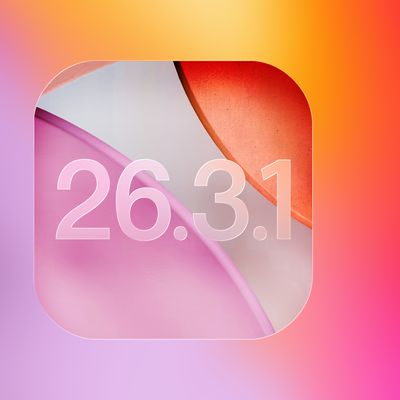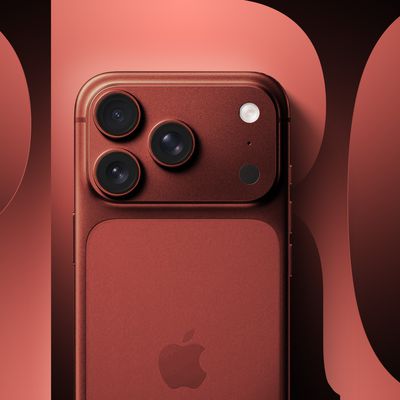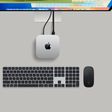 Jony Ive has been in the spotlight since late last year when he took over Apple's Human Design interface team after senior vice president of iOS software Scott Forstall was ousted from Apple.
Jony Ive has been in the spotlight since late last year when he took over Apple's Human Design interface team after senior vice president of iOS software Scott Forstall was ousted from Apple.
Ive is said to be heavily involved with iOS 7's rumored redesign, which will feature a flat design that removes many of the skeuomorphic elements featured in iOS 6. Much of the talk of iOS 7 has focused solely on the look of the new operating system, but a former Apple intern points out that Ive's influence will be featured heavily below the surface as well.
Ben Thompson, who currently works for Microsoft's Windows Apps team, was at Apple from June to August 2010. In a post on his blog Stratechery, Thompson shares a never before released quote from Ive that highlights his focus on a product's overall aesthetic rather than attributes that can be measured with numbers.
But there are a lot of product attributes that don't have those sorts of measures. Product attributes that are more emotive and less tangible. But they're really important. There's a lot of stuff that's really important that you can't distill down to a number.
And I think one of the things with design is that when you look at an object you make many many decisions about it, not consciously, and I think one of the jobs of a designer is that you're very sensitive to trying to understand what goes on between seeing something and filling out your perception of it. You know we all can look at the same object, but we will all perceive it in a very unique way. It means something different to each of us. Part of the job of a designer is to try to understand what happens between physically seeing something and interpreting it.
As Thompson points out, Ive is in charge of Apple's Human Interface team rather than the visual design team, an important distinction that implies his role goes much deeper than offering a simple aesthetic overhaul. Design, hardware, and functionality are all inextricably linked in Ive's mind, suggesting that iOS 7's interface changes may be more important than its physical design changes.





















Top Rated Comments
Let me back your quote up a few decades, and put it in that context... "Someone at Apple should pick up a Dell computer. I bet they would be surprised its not molded out of a single slab of aircraft quality aluminum. But the damn thing can be opened up and you can put whatever components you want to inside, and it runs Windows and lets you do what you want with it. I'm an apple fanboy at heart, but if Apple continues to lag behind the competition (Dell, Acer, Gateway, HP), I'm going elsewhere with my $. Hats off to Jobs if he can change my mind."
Know what? Jobs didn't give a crap then, and I seriously doubt that Ives does now.
You do realize, don't you, that for decades now PC owners have been saying the same thing about Macs? Too expensive. Too many high-end materials. Too proprietary. Too restrictive and not "open" enough. All of which means that they're "lagging behind the competition"... Look - this is what Apple does. It's what they are. Here's the thing you need to hammer into your skull: They aren't nearly as concerned with "lagging behind" as they are with realizing the products they envision. That's what makes them unique and special.
I doubt that you're really "an apple fanboy at heart". If you were, you'd know that this has always been Apple's MO with all of their products. They control hardware and software for an end-to-end user experience that THEY define according to their own set of values. They design with high quality materials, and spend lots of cash and time on the look and feel itself. They try to make their products optimally usable and productive, without allowing so much user-customization ("letting the damn thing do whatever you want it to") that it degrades performance and stability. The opposite model is what the PC camp (vs the Mac camp) has always stood for. Many disparate manufacturers instead of a proprietary system, cheaper materials and designs for lower cost systems, user customizable to appeal to a larger market, etc..., etc... This is what has always distinguished PCs from Macs. iPods from myriad other MP3 players. Now, iPhones from Android phones. Those other camps are more about prioritizing sales and broader markets over actual products.
Apple doesn't do that. They leave it to the other model - in this case the Android model. Apple is more about the product itself first, and they're willing and prepared to accept a smaller market share in order to guarantee the product they want to produce. Save for when they got off track under John Scully (without Jobs), it's always been that way, and hopefully it always will be. The minute they change, use cheaper materials and designs, stop being proprietary, and let users decide how things work, they become the next Dell and HP. They are trying to preserve the Steve Jobs mantra - "People don't know what they want until we show it to them."
That said, lots of people value having control over their fonts and interfaces over the build-quality, etc... They like the PC/Android model over the Mac/iPhone model. That's fine. They have many products to choose from. They just shouldn't expect Apple to change their foundational model to become like all the rest.
You would fit in well at Microsoft or RIM/Blackberry. No so much at Apple.
It's that space that you and other people such as Steve Ballmer refer to as "nothing" that seems to be running circles around the competition. It's that nothingness that has been referred to as the magic in the devices that gets people in lines waiting to get their hands on a new iDevice.
I believe you though. There is nothing here for you.
Unimpressive. Quit talking and get back to moving some product forward.